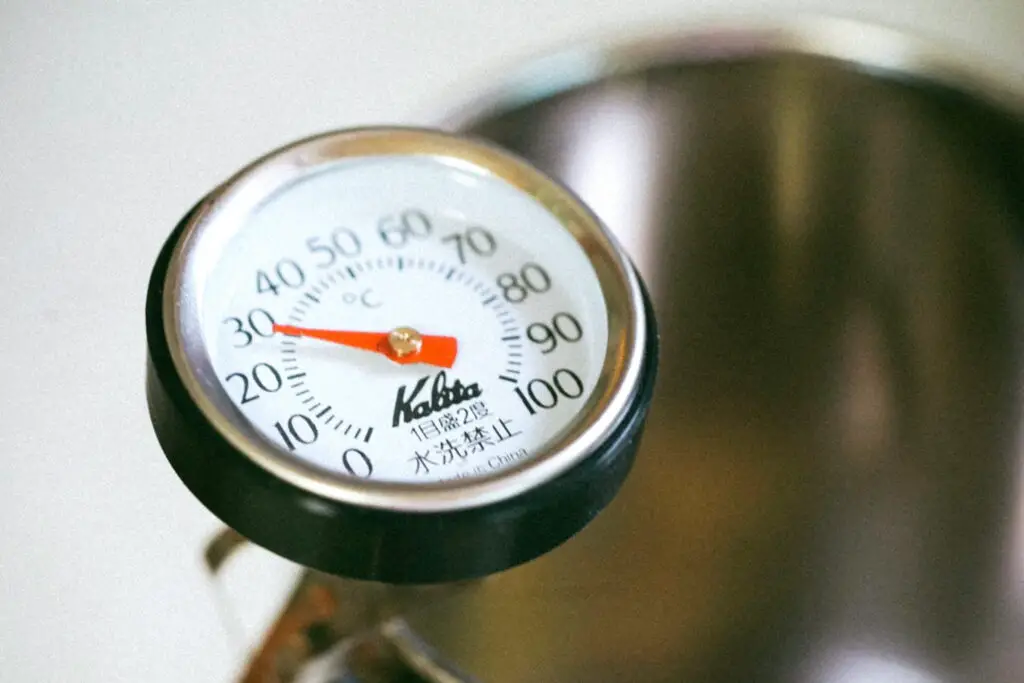It is estimated that the average person throws away around 4 pounds of garbage per day. Around 75 percent of that garbage is comprised of organic matter, which means it is compostable. Let’s explain how to reduce this amount by Composting. You will find What’s composting? What a Good Compost?
What’s Composting ?
Composting is a way to speed up the natural, biological process through which organic wastes are reduced to humus, which is dark, earth-like organic matter that has reached the point where it will not break down any further.
This finished compost or humus greatly improves soil texture and better enables the soil to retain nutrients, moisture, and air for the support of healthy flowers and vegetables. Composting is something we can all do to help the environment, and it is rather easy to learn how to compost.
There are many benefits to composting, including reducing the amount of waste sent to landfills, saving money on fertilizer, and improving the quality of your soil. Composting also helps to reduce greenhouse gas emissions, as it reduces the need for chemical fertilizers and other soil amendments.
Read more about the science of Composting.
Important Elements to consider for composting
Temperature
Organic matter decomposes more quickly at warmer temperatures. The ideal temperature for rapid decomposition is between 55 and 70 degrees Fahrenheit.
Temperatures that are too high or too low will slow the composting process. In order to monitor the compost’s temperature, check The 5 Best Compost Thermometer : Guide and Review
Oxygen
Oxygen is essential to the composting process. The bacteria that decompose the organic matter need oxygen to survive. If the compost pile is too wet, it will not have enough oxygen.
This can cause the compost to smell bad. If the compost pile is too dry, it will not decompose.
To ensure that the compost pile has enough oxygen, it is important to turn it regularly. This will aerate the pile and allow oxygen to reach the bacteria.
Moisture
A compost pile should be about as moist as a damp sponge. If it is too wet, the compost will smell bad. If it is too dry, it will not decompose.
To keep your compost pile from getting too wet, make sure that there is good drainage and that there is plenty of air circulation. If it is too dry, add some water.
Composting and pH
The ideal pH for composting is between 6 and 7.5. If the pH is too low, it will slow the composting process. If the pH is too high, it will inhibit the growth of bacteria.
Carbon to Nitrogen Ratio
The ideal carbon to nitrogen ratio for composting is 30 to 1. This means that for every 30 parts of carbon, there should be 1 part of nitrogen.
If the ratio is too high, the compost will not decompose. If the ratio is too low, the compost will smell bad.
Aeration
Aeration is important for the composting process. Aeration allows oxygen to reach the bacteria that decompose the organic matter. If the compost pile is not aerated, it will not decompose.
Leachate
Leachate is the liquid that drains from a compost pile. It contains nutrients that can be used by plants.
If the compost pile is too wet, it will produce a lot of leachate. This can cause the compost to smell bad.
To avoid this, make sure the compost pile has the right amount of moisture.
Materials
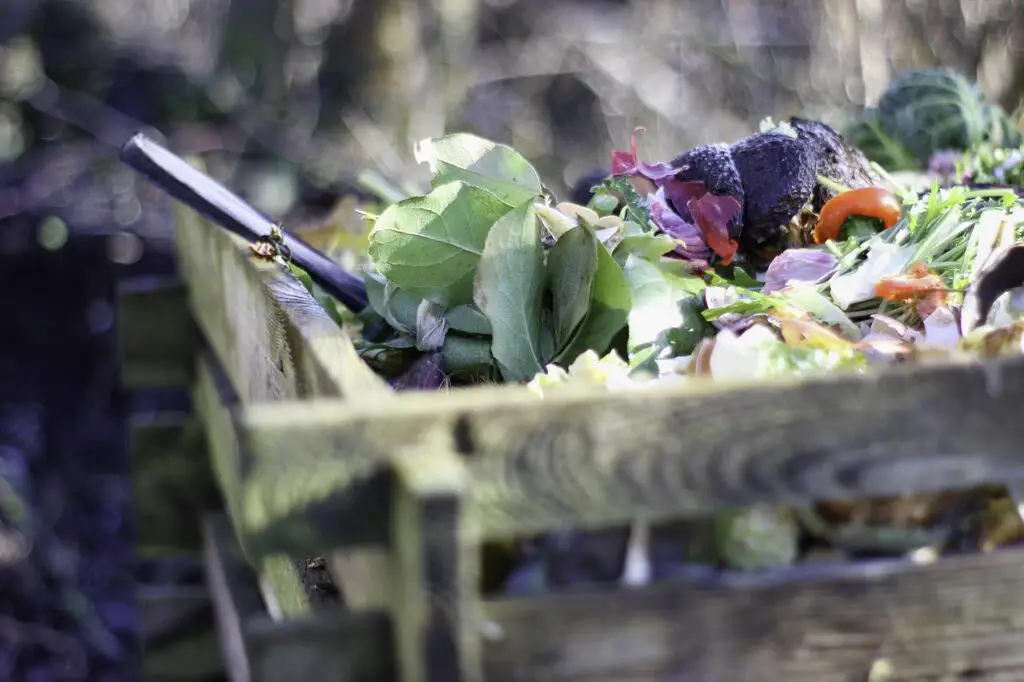
The type of materials you put in your compost pile are important. The best materials for composting are green, leafy plants and kitchen scraps.
These materials have a high carbon to nitrogen ratio. This means that they will decompose quickly.
You can compost a variety of materials, including:
- Fruit and vegetable scraps
- Egg shells
- Coffee grounds
- Tea bags
- Grass clippings
- Leaves
- Pine needles
- Wood chips
- Shredded newspaper
- Cardboard …
What materials should not be composted ? Some items should not be composted, such as meat, dairy and oils. These items can attract pests, create bad smells, and cause other problems.
Read more about materials for composting here.
Time
The time it takes for a compost pile to decompose depends on the materials you put in it, the temperature, and the amount of oxygen and moisture.
In general, it takes about two months for a compost pile to decompose.
Worms
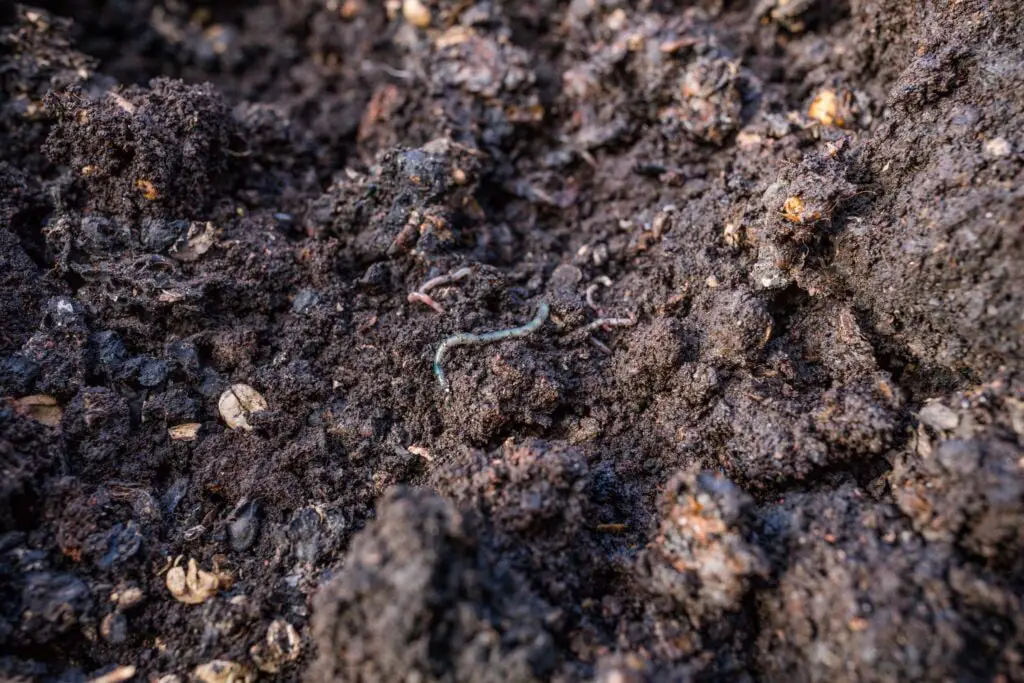
Worms are not necessary for the composting process, but they can help. Worms eat the organic matter and help to aerate the compost pile. This speeds up the decomposition process.
Read more on compositng and worms on Worm Composting : The Beginner Guide To Vermicomposting
Composting and insects
Insects are not necessary for the process, but they can help. Insects eat the organic matter and help to aerate the compost pile. This speeds up the decomposition process.
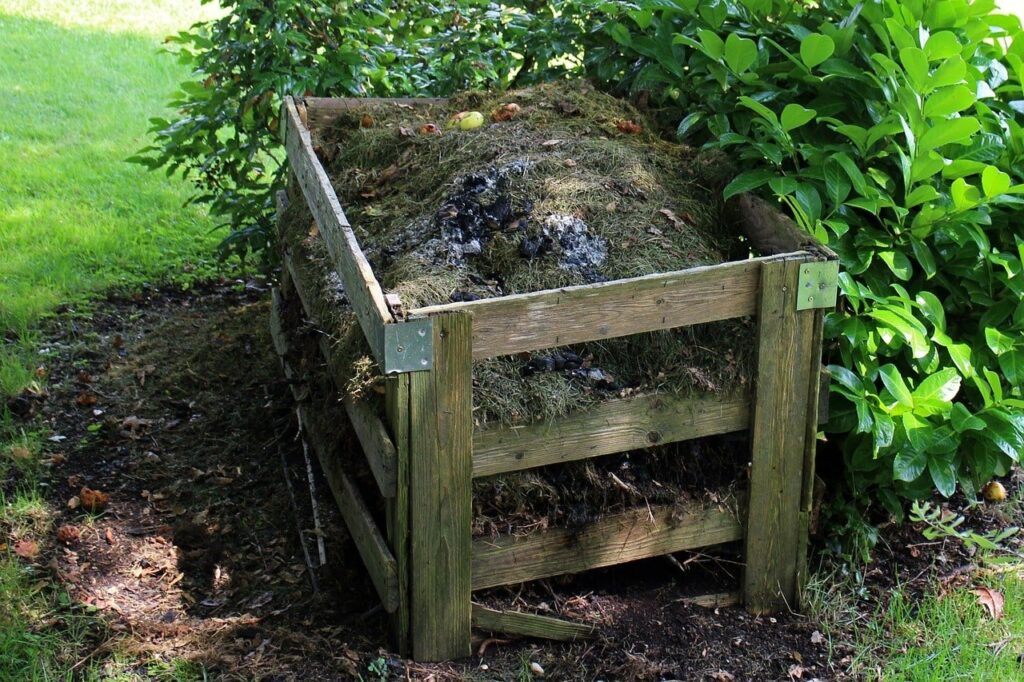
A garden composter is type of compost bin that is typically used to compost organic material from gardens and yards. Garden composters come in many different shapes and sizes, but most are circular or rectangular in shape and have a lid. Some garden composters have a bottom that can be opened to allow for aeration, while others have solid bottoms.
Check our guide on Garden Composter – The 5 Most Common Composter Containers
The 4 Composting Process Stages
The process can be divided into four main stages.
The four stages of the composting process are not always clearly defined, and the composting process can vary depending on the method used.
The time taken to complete the composting process will vary depending on the type of organic matter being composted, the type of material used, the temperature and moisture levels, and the aeration of the compost pile.
In general, the composting process can take anywhere from two weeks to two years.
1. Pre-composting
The process of breaking down the organic matter into smaller pieces before it is mixed with the composting material.
At stage one, the materials being composed are dark in color and still easily recognizable; micro-organisms are sparse and just beginning their activity; a rise in temperature can be observed: This is the heating phase.
2. Active composting
The process of mixing the organic matter with the material and allowing it to decompose.
At stage two the compost has a mild, not unpleasant odor; it contains many micro-organisms the materials being composted are very loose and brittle, and almost unrecognizable; mushrooms may be present, aiding to decompose the most resistant materials: cellulose, lignin, and wood; chemical exchange takes place during this stage: This is the gaseous and liquid phase.
3. Curing
The process of allowing the compost to mature and stabilise.
At stage three, recombination of decomposition products from preceding stages occurs: This is the humidification phase.
4. Aged Compost – Use
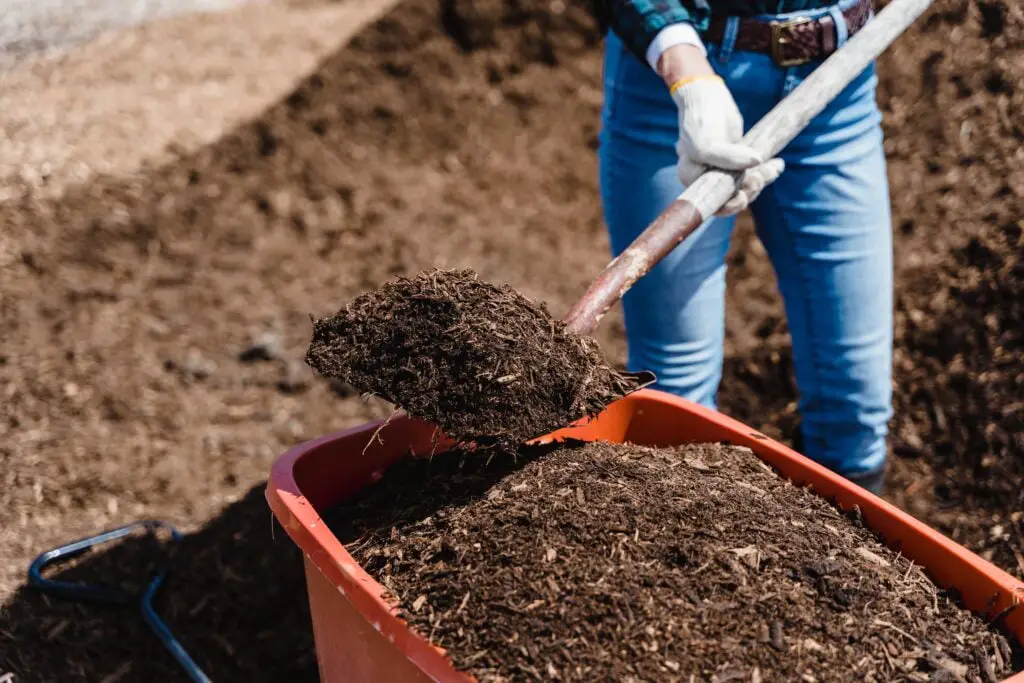
The process of using the compost in the garden or on the garden/farm.
At stage four, the compost looks almost like soil (loam); it resembles natural topsoil; its organic matter and nitrogen content are low: This is the mineralization phase.
What is Compost Accelerator ?
A compost accelerator is a material that helps speed up the decomposition of organic matter in a compost pile.
The accelerator provides the bacteria and other organisms that break down the organic matter with the nutrients they need to work faster. This can shorten the composting process by weeks or even months.
There are many different types of compost accelerators on the market. Some are liquids that you mix with water, and some are powders that you add to your compost pile. There are also some commercial compost accelerators that you can purchase.
The 3 Easy Steps to Start Good Composting
At this point, we should have a better idea of how to compost. Now, you may be asking yourself, “How do I start composting even at home ?”
1. Determine which method you desire to use.
Will you create a compost pile or heap? Will you build a compost bin? Or, will you purchase a manufactured composter?
2. Next, start being diligent in separating your garbage.
Start setting aside materials that can be added to your compost pile or composter. Of course, organic materials such as vegetable peelings, coffee grounds, and eggshells can be added.
Also, be sure to keep out things such as envelopes with glassine windows, as these materials do not readily break down in the composting process.
Finally, yard waste, such as grass clippings, is a great nitrogen-rich additive to your compost pile or composter.
3. Remain committed to your composting endeavors.
With some diligence, you should have your first batch of compost in 3-4 months using a compost pile or heap and even sooner if you use a composter.
Composters retain the heat generated from the composting process, which in turn breaks down the organic materials more quickly.
Composting FAQ
What are the 4 types of composting?
The four types of composting are: cold composting, hot composting, vermicomposting, and anaerobic composting.
How do I start composting?
To start composting, you will need to gather some materials, including: a compost bin, organic materials to compost, water, and a shovel. You will also need to find a location for your bin that gets sunlight and has good drainage.
What is the process of composting?
The process of composting involves layering organic materials in a bin, and then adding water and turning the materials regularly. The organic materials will break down over time, and the compost can be used as a fertilizer for gardens and plants.
What is the purpose of composting?
The purpose of composting is to reduce the amount of waste that goes into landfills, and to create a natural fertilizer that can be used to improve the health of gardens and plants.
Conclusion
As you can see, learning how to compost is not as difficult a task as you may have expected.
The biggest challenge is changing your lifestyle so that you are more conscious of what, in your “world,” can be composted.
Composting is a wonderful way to recycle your garbage and turn it into nutrient-rich compost to be used in your garden, while at the same time reducing the amount of garbage that ends up in landfills.
